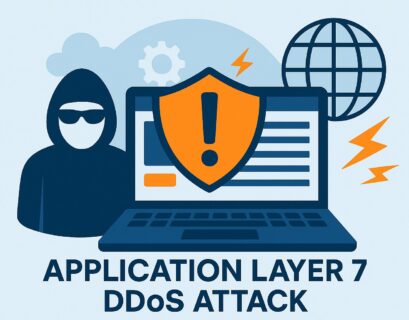In our increasingly interconnected world, cybersecurity threats continue to evolve, and one particularly concerning method is the Memcached DDoS amplification attack. Exploiting vulnerable Memcached servers, attackers can generate overwhelming traffic that cripples targeted websites and services. Understanding the mechanics of these attacks and implementing robust protection measures is crucial for organizations to safeguard their online presence. This article explores the workings of Memcached DDoS amplification attacks and their immense amplification potential and provides insights into effective mitigation strategies.
Table of Contents
What is a DDoS amplification attack?
These attacks usually use the UDP protocol. It is a simple connectionless communication model with a minimum protocol mechanism. This means that one of the sides in the communication can send large amounts to the other without restrictions. Without any confirmation, it doesn’t matter if the second side receives the data.
Due to the way the UDP protocol works, cyber-criminals use it to generate DDoS amplification attacks. The attacker sends a small UDP request with a spoofed IP address of the victim to public services.
The UDP protocol doesn’t require a connection verification between the parties. This is why the public services reply with the requested data to the IP address of the victim. As bigger is the data returned by exploited public service, bigger is the DDoS amplification factor.
In the past few years, hackers have exploited many public DNS resolvers and NTP servers to generate massive DDoS attacks against popular websites and services.
Understanding Memcached
Memcached is a widely-used, open-source caching system that enhances the performance of dynamic web applications by reducing database load. It achieves this by storing data in memory, allowing for rapid retrieval and minimizing the need for repeated database queries. By caching frequently accessed objects such as database query results and session data, Memcached helps applications run more efficiently and respond faster to user requests. Its straightforward design and robust performance have made it a staple in optimizing large-scale web applications. However, without proper configuration and security measures, Memcached can become vulnerable to exploitation, emphasizing the need for diligent management.
Memcached DDoS amplification attack explanation
A Memcached DDoS amplification attack is a malicious exploit where attackers leverage vulnerable Memcached servers to generate overwhelming traffic towards a target. By sending small requests to multiple servers, the attackers receive significantly larger responses, resulting in an amplification effect. This massive traffic surge can cripple the target’s network infrastructure, disrupting service. To mitigate such attacks, organizations should secure their Memcached servers, implement access controls, and utilize robust DDoS mitigation solutions to protect against this highly impactful cyber attack.
Ready for ultra-fast DNS service? Click to register and see the difference!Experience Industry-Leading DNS Speed with ClouDNS!
How does it work? Step-by step
1. Identifying vulnerable servers: Attackers scan the internet to locate Memcached servers that are accessible and have User Datagram Protocol traffic enabled. UDP is preferred due to its connectionless nature, making it easier to spoof source IP addresses.
By default Memcached works with enabled UDP support on port 11211. To understand this attack we have reviewed the source code of the database on GitHub.For some reason in the communication settings of the defined a fixed payload of 1400 bytes for the UDP packets.
The basic UDP request sent to Memcached is with size 15 bytes, and the server responds with 1400 bytes. This makes the amplification factor more than 93x! That amplification factor means that with a single server with 1Gbps port and a significant amount of vulnerable servers, the attacker can generate DDoS attacks over 90 Gbps.
2. Spoofing the source IP address: Using various techniques, attackers disguise their own IP address and make it appear as if the attack traffic originates from the targeted victim’s IP address. This ensures that the amplified response traffic is directed towards the victim.
Suggested article: What is DNS Spoofing (DNS poisoning)?
3. Sending small forged requests: Attackers send lightweight and innocuous-looking requests to the vulnerable Memcached servers. These requests typically have a small size, often around 15 bytes, which minimizes the effort required to send them.
4. Amplification of response traffic: Exploiting the Memcached servers’ behavior, which responds to small requests with much larger responses, the attackers achieve an amplification factor that can reach staggering levels. This means that for each small request sent, the server responds with a significantly larger volume of data, often in the range of hundreds or thousands of times larger.
5. Overwhelming the target: The amplified response traffic, generated by the Memcached servers, floods the victim’s network infrastructure with an immense volume of data. This flood of traffic can quickly exhaust the victim’s network bandwidth, computing resources, and cause service disruptions or complete downtime.
How big can it be?
In the realm of cybersecurity, we have witnessed an unprecedented magnification factor, reaching an astonishing 51,200 times the original request size! Picture this: a mere 15-byte request has the potential to unleash a colossal 750 kB response. This mind-boggling amplification factor poses an immense security risk, particularly for web properties ill-equipped to handle the overwhelming deluge of attack traffic. With its significant amplification potential and susceptible servers, Memcached becomes a prime target for malicious actors intent on launching devastating DDoS attacks against a wide array of targets.
Furthermore, according to the GitHub’s February 28th DDoS Incident Report, the largest open source code web service was down due to a Distributed Denial of Service attack that caused intermittent unavailability of their service for a few minutes. The attack exploited a vulnerability in Мemcached, resulting in a volumetric attack that peaked at 1.35Tbps. GitHub successfully mitigated the attack by diverting traffic to Akamai and implementing access control measures, and they are working on improving their automated intervention and expanding their edge network to enhance resilience against future attacks.
How to protect from Memcached DDoS amplification attacks?
Our Anycast Network is protected from such attacks, and we already mitigated more than 20 attacks like this for the last five days.
Тo protect your website, online service, etc you can also implement DDoS protection software. ClouDNS DDoS Protected DNS service can help identify and filter out malicious traffic, thereby minimizing the impact of amplification attacks.
Other way to protect from Memcached DDoS amplification attacks is by regularly monitoring the traffic. We provide robust monitoring solutions which enable the timely detection of abnormal traffic patterns, facilitating early response and mitigation.
Furthermore, with enough network capacity, we can easily filter the attack of the Memcached server responds from UDP port 11211. We can say for sure that all our customers are protected and safe.
The average size of the DDoS attacks we filter was between 50Gbps and 80Gbps. First we expect that value to grow in the next two weeks. Then to drop significantly because the system administrators will take care of the vulnerable servers.
Ways to secure a Memcached server
The system administrators of Memcached servers can protect them in one of the following ways:
- Update the configuration of the server to listen only on 127.0.0.1 (localhost). Do this if use the Memcached server only locally and there are no external connections to the server. You can do this with the option –listen 127.0.0.1
- Disable UDP support, if you are not using it. You can do this with the option -U 0
- Add firewall for UDP port 11211, if you need both external connections and UDP support, make sure the server is accessible only by the IPs you need
- Instead of exposing your Memcached server directly to the internet, you can use a caching proxy server
- Restrict access to the Memcached server using access control lists (ACLs) to allow only trusted IP addresses.
How to Detect If Your Server Is Being Used in an Amplification Attack
If your Memcached server is misconfigured and exposed to the public internet, it may be unknowingly participating in DDoS amplification attacks. Detecting this early is crucial to avoid being part of a broader cyberattack.
Start by monitoring outbound traffic patterns. If your server is suddenly sending large volumes of data to unfamiliar IP addresses, especially over UDP port 11211, it’s a strong indicator of abuse. These spikes are usually disproportionate to normal Memcached operations.
Next, review your server logs for unusual query patterns or repetitive small-sized requests. Attackers often use automated scripts that generate a high volume of identical or nearly identical requests to trigger large responses.
You can also use tools like Wireshark or tcpdump to inspect network traffic and look for suspicious activity. If you see traffic where the source IP doesn’t match your legitimate clients and the volume of outgoing packets is significantly higher than incoming ones, your server may be exploited.
Regular vulnerability scans can also help identify exposed services before they are misused. Proactive monitoring and logging are key to identifying and stopping abuse early.
Conclusion
By exploiting vulnerable Memcached servers, attackers can unleash a massive flood of traffic, causing widespread disruptions. To defend against these attacks, organizations must secure their Memcached servers, implement strict access controls, and utilize effective DDoS mitigation solutions.







How does DDoS amplification attack work?
Hey Sofyana, you can check it in the article under section “What is DDoS amplification attack?”